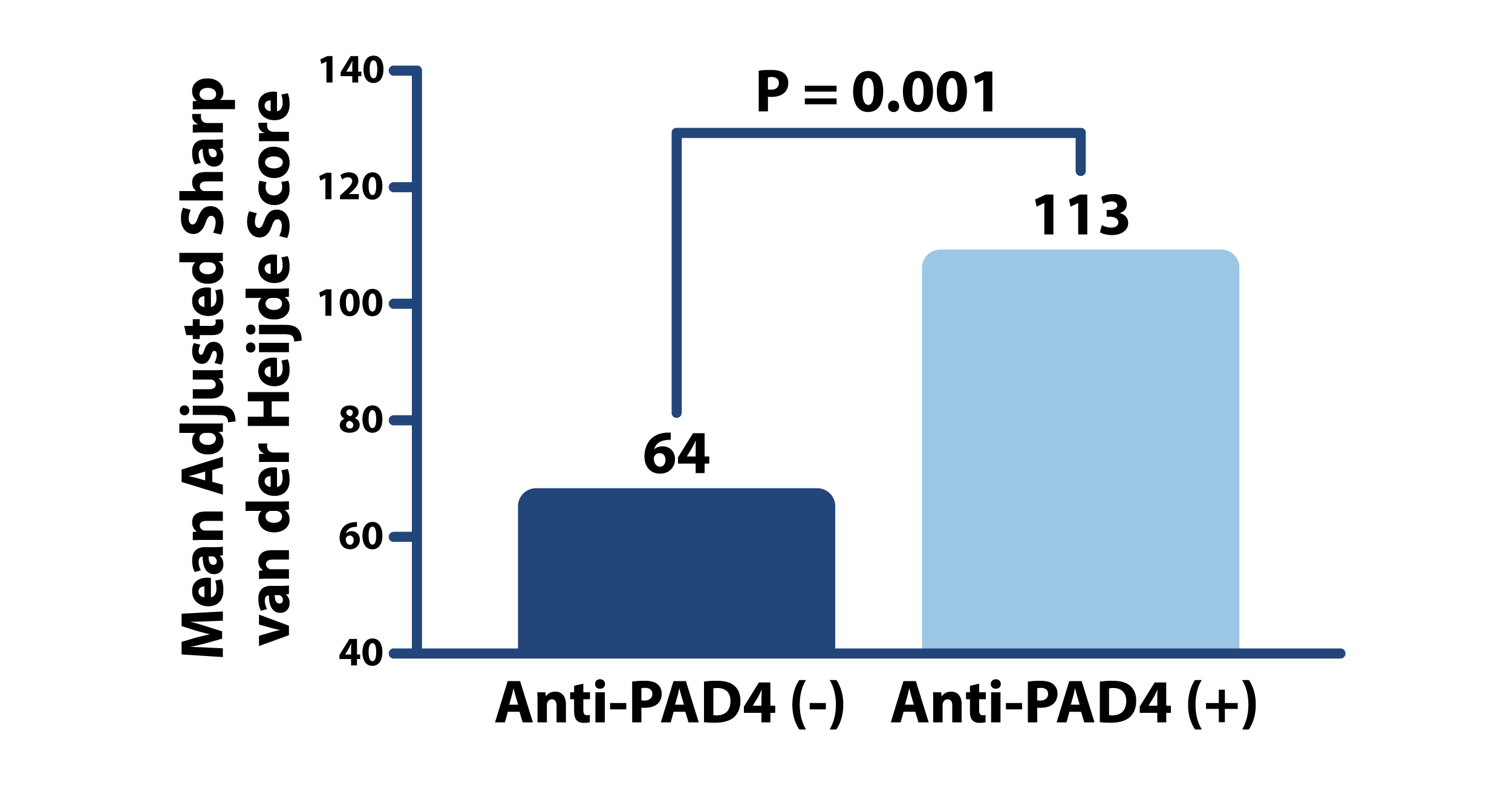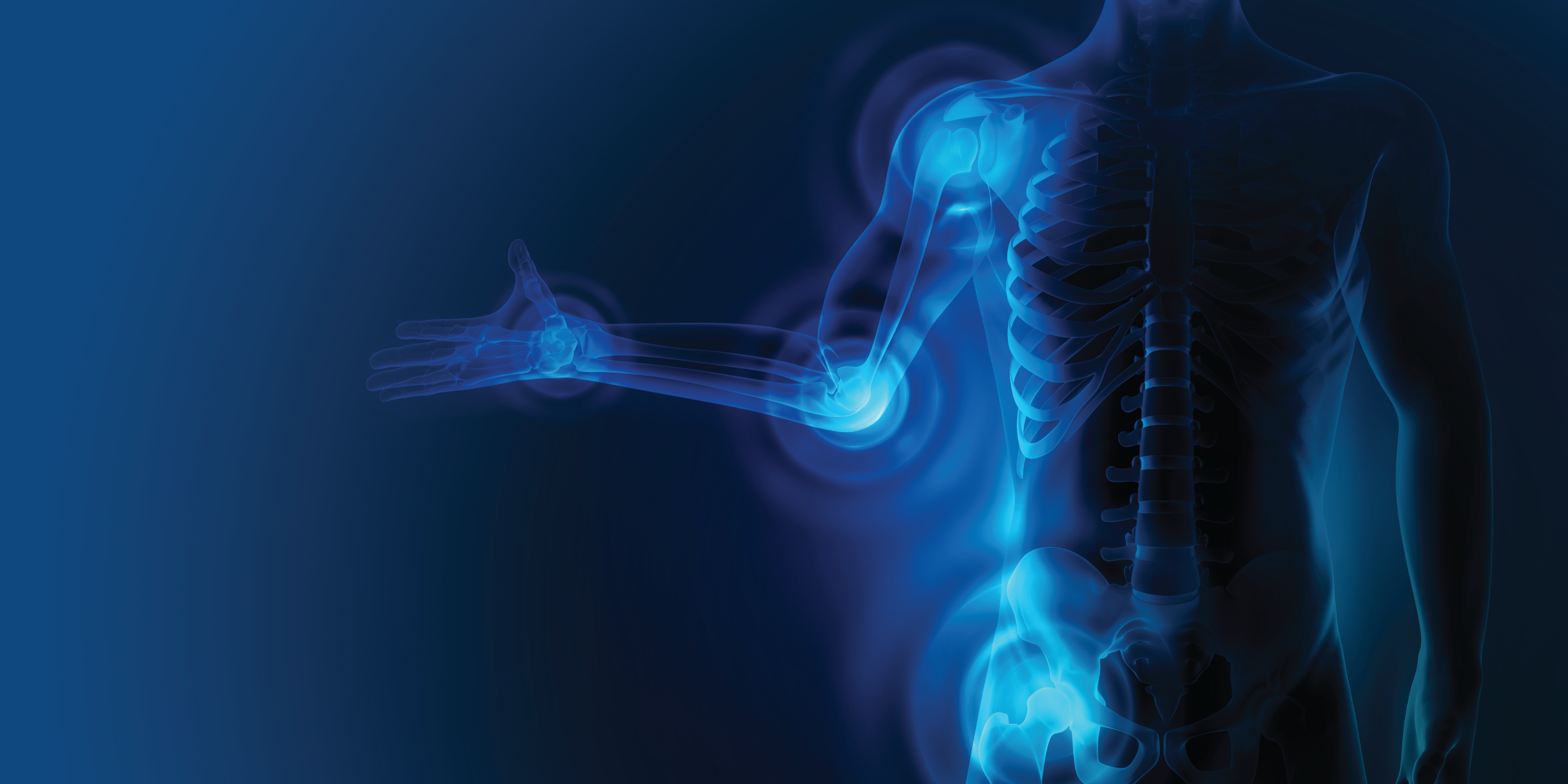AVISE CTD PAD4 Biomarkers
Traditional markers like rheumatoid factor (RF) and anti-cyclic citrullinated peptide (anti-CCP) are absent in up to 30% of rheumatoid arthritis (RA) patients, delaying diagnosis and treatment. This leaves clinicians without objective tools to support early intervention, prognostic assessment, or differentiation from other inflammatory arthritides.
Anti-PAD4 autoantibodies offer a novel solution for identifying seronegative RA, enabling earlier diagnosis, clearer differentiation, and prognostic insight to support more confident clinical decisions.
Peptidylarginine deiminases (PADs) play a crucial role in the pathogenesis of RA by producing citrullinated proteins, which are the hallmark autoantigens of the disease. Anti-PAD4 autoantibodies target one of these enzymes involved in this critical process. Unlike traditional markers, anti-PAD4 can be present in patients who are seronegative by RF and anti-CCP, helping clinicians identify RA earlier in the disease course. By providing additional diagnostic and prognostic insight, anti-PAD4 supports earlier intervention and greater confidence when differentiating RA from other inflammatory arthritides, especially in clinically ambiguous cases.
Anti-PAD4 autoantibodies are highly specific against healthy individuals (>95%) and other autoimmune rheumatic diseases including systemic lupus erythematosus (SLE), psoriatic arthritis (PsA), and Sjögren’s disease.1
Coexisting anti-PAD4 IgA and IgG autoantibodies correlate with higher diagnostic specificity for RA.
Anti-PAD4 is associated with heightened risk for severe joint damage. Anti-PAD4 autoantibody levels are independently associated with radiographic severity in RA.**3



Other Resources

ON-DEMAND WEBINAR Innovative Clinical Biomarkers for SLE and RA: Advancing Autoimmune Diagnostics
In this webinar, you will gain insights into emergent biomarkers for systemic lupus erythematosus (SLE) and rheumatoid arthritis (RA). The speakers will share how novel T Cell biomarkers can offer more confident diagnoses of SLE, particularly when conventional biomarkers are insufficient.

ON-DEMAND WEBINAR Bridging the Gap in Seronegative Rheumatoid Arthritis: Unlocking the Diagnostic and Prognostic Potential of RA33 Antibodies
This webinar will explore the emerging diagnostic and prognostic value of anti-RA33 autoantibodies (IgG, IgA and IgM) as novel biomarkers, capable of bridging the critical gap in seronegative rheumatoid arthritis (SN RA) clinical practice. Through a comprehensive review of existing diagnostic methods and their limitations, participants will understand why innovative biomarkers are urgently needed.
References:
- Data on file
- Kolfenbach J, et al. Arthritis Rheum. 2010 Sep;62(9):2633-9. doi: 10.1002/art.27570.
- Harris M, et al. Arthritis Rheum. 2008 July; 58 (7)1958–67. doi: 10.1002/art.23596

